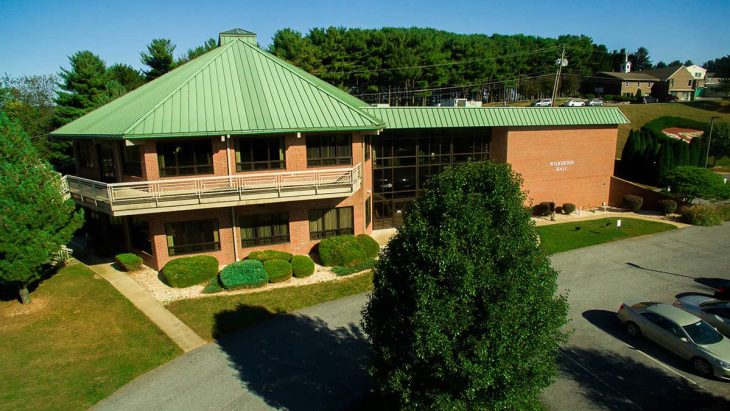Pennsylvania Adult and Teen Challenge

About Pennsylvania Adult and Teen Challenge
If you’re looking into addiction recovery, Pennsylvania Adult and Teen Challenge (PAATC) in Rehrersburg, Pennsylvania is a standout. In addition to residential rehab, they have inpatient detox programs and it’s all woven together with a really strong faith based mission. Their goal is to heal the whole person, mind, body and spirit through a deep belief that faith is key to lasting change.
Medical Detox in Rehrersburg
PAATC’s approach to getting well is genuinely distinct. They kick things off with medically monitored detoxification. That means 24/7 medical oversight and using FDA approved meds to make withdrawal as smooth as possible.
After that, their clinically managed residential treatment is a focused, roughly 30 day program. But the real heart of the place is their faith based long term discipleship program. This is an intense 11 to 14 month residential journey for taking deep dives into spiritual growth, real world life skills, and active community involvement.
Tailored Paths for Every Pennsylvanian
One thing PAATC absolutely nails is its commitment to helping everyone, no matter their background. They offer specialized support for young adults ages 18 to 25 as well as seniors, and veterans. They also provide special programs for individuals dealing with co occurring mental health conditions, chronic pain or HIV/AIDS.
This incredibly understanding and empathetic approach, combined with a supportive community and thoughtful aftercare plans, really builds an environment where lasting change isn’t just a dream but a very real possibility.
| Levels of Care | Detox Service Setting | Programs | Payment Options | ||
|---|---|---|---|---|---|
|
Inpatient and residential programs provide round-the-clock medical and emotional support as you live at the treatment facility. This level of care may be recommended if you have severe addictions or mental health conditions since it removes outside distractions and allows you to focus solely on therapy. |
Aftercare programs provide ongoing support after you complete a rehab program. They may include several components to help you maintain sobriety including therapy, community support groups and relapse prevention strategies. This gives you a network of resources as you reintegrate into your daily life. |
Dual diagnosis programs address substance use disorders and co-occurring mental health conditions simultaneously. This integrated approach to care improves the likelihood of long term recovery and stability by addressing the root causes of addiction. |
|||
|
Inpatient detox occurs in a dedicated treatment facility. You’ll live there around the clock and receive intensive medical support and supervision to help manage your withdrawal symptoms. It is suitable for individuals with moderate to severe addictions as it ensures a stable detox environment. |
|||||
|
Adult programs address the substance use and life challenges specific to adults. Therapists can deliver sessions in individual, group and family settings. Services often include job support and life skills training in a structured environment. |
Alcohol detox programs offer medical support to help individuals withdraw safely from alcohol. Your care team may use medications to ease your symptoms and provide medical monitoring to address complications. |
Cognitive behavioral therapy focuses on changing harmful thought patterns and behaviors associated with addiction. You’ll learn healthier coping mechanisms by identifying and replacing negative thoughts. This improves your emotional resilience and decreases your relapse potential. |
Men's programs address substance use while also considering the social pressures, family roles and mental health concerns that are specific to men. You’ll learn healthy coping mechanisms as you build emotional resilience and develop communication skills. |
Opioid detox uses medications to ease severe withdrawal symptoms. It also includes medical supervision to help you manage potential complications. These services allow you to stabilize and begin a recovery plan. |
Young adult programs are designed for individuals who are transitioning into adulthood. Topics of discussion typically include identity, independence and peer relationships. Providers may also offer life skills training and career support. |
|
Payment Assistance
|
Medicaid
|
Private Insurance
|
Self Pay
|
Levels of Care
Inpatient and residential programs provide round-the-clock medical and emotional support as you live at the treatment facility. This level of care may be recommended if you have severe addictions or mental health conditions since it removes outside distractions and allows you to focus solely on therapy.
Aftercare programs provide ongoing support after you complete a rehab program. They may include several components to help you maintain sobriety including therapy, community support groups and relapse prevention strategies. This gives you a network of resources as you reintegrate into your daily life.
Dual diagnosis programs address substance use disorders and co-occurring mental health conditions simultaneously. This integrated approach to care improves the likelihood of long term recovery and stability by addressing the root causes of addiction.
Detox Service Setting
Inpatient detox occurs in a dedicated treatment facility. You’ll live there around the clock and receive intensive medical support and supervision to help manage your withdrawal symptoms. It is suitable for individuals with moderate to severe addictions as it ensures a stable detox environment.
Programs
Adult programs address the substance use and life challenges specific to adults. Therapists can deliver sessions in individual, group and family settings. Services often include job support and life skills training in a structured environment.
Alcohol detox programs offer medical support to help individuals withdraw safely from alcohol. Your care team may use medications to ease your symptoms and provide medical monitoring to address complications.
Cognitive behavioral therapy focuses on changing harmful thought patterns and behaviors associated with addiction. You’ll learn healthier coping mechanisms by identifying and replacing negative thoughts. This improves your emotional resilience and decreases your relapse potential.
Men's programs address substance use while also considering the social pressures, family roles and mental health concerns that are specific to men. You’ll learn healthy coping mechanisms as you build emotional resilience and develop communication skills.
Opioid detox uses medications to ease severe withdrawal symptoms. It also includes medical supervision to help you manage potential complications. These services allow you to stabilize and begin a recovery plan.
Young adult programs are designed for individuals who are transitioning into adulthood. Topics of discussion typically include identity, independence and peer relationships. Providers may also offer life skills training and career support.
Amenities
Accreditations
Contact

Ruben Vasquez is drawn to projects that start with a question and end with something useful—whether it’s writing about DIY builds, small-scale farming, or using homegrown food to support real healing. He has hands-on experience with microgreens, hydroponics, worm composting, and building businesses from the ground up.
He loves diving into unfamiliar territory, learning as he goes, and turning what he learns into clear, practical writing. Whether it’s explaining tough topics, making things more approachable, or adding a little humor along the way, Ruben brings a grounded, curious energy to every project—especially ones rooted in health, sustainability, and self-reliance.

Nikki Wisher is an Atlanta-based content writer with over a decade of experience specializing in health and wellness. While she spends most of her days writing about various aspects of health, from addiction recovery to fitness to skin care, she also writes content in many other areas like photography, beauty, and marketing. Her passion project is her inclusive running blog, forallrunners.com.




